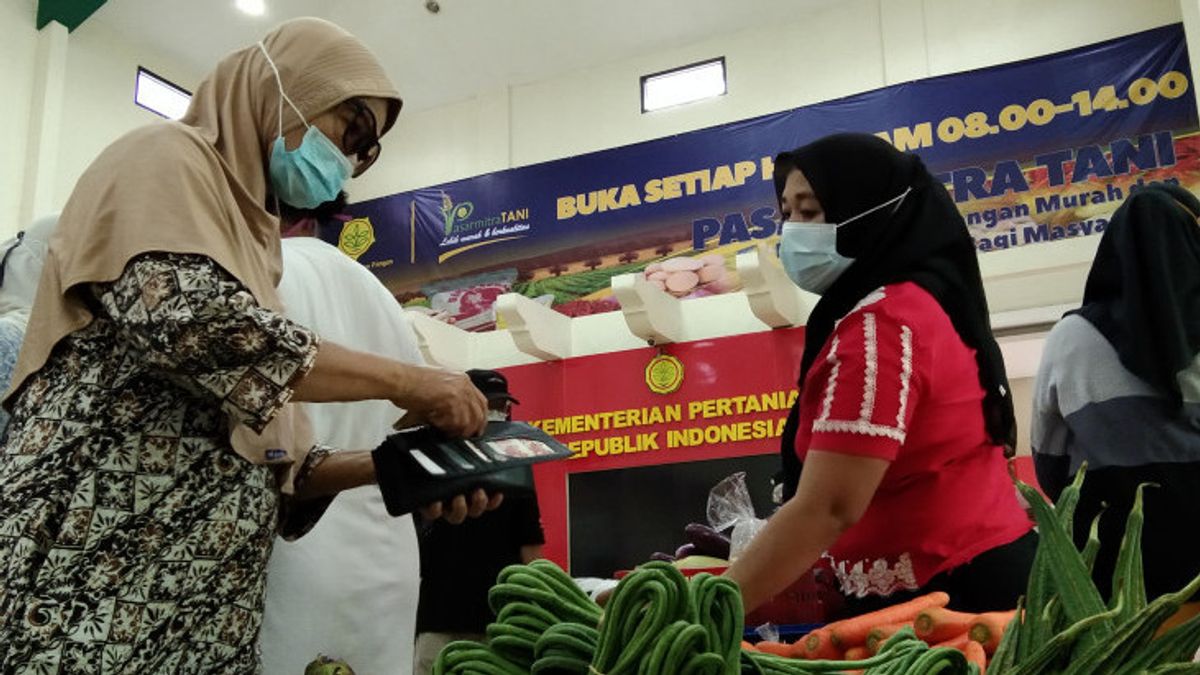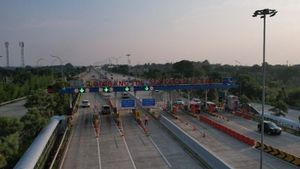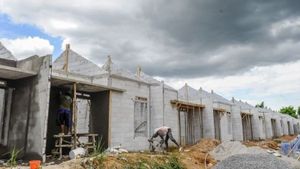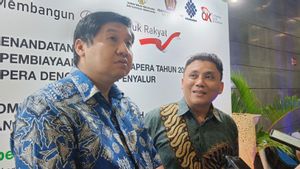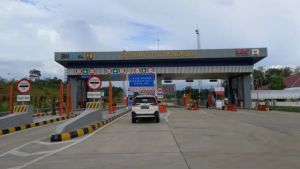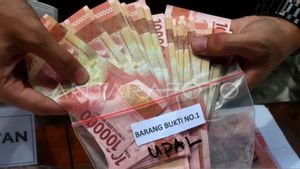JAKARTA - Indef Researcher (Institute for Development of Economics and Finance) Andry Satrio Nugroho, revealed that Indonesia has a large homework ahead when the world economy is faced with uncertainty, namely maintaining people's purchasing power and domestic consumption.
"The homework is how to maintain people's purchasing power," said Andry, Wednesday, December 21.
According to Andry, Indonesia's economic growth depends on people's purchasing power. This means, he said, when people's purchasing power is maintained, Indonesia's economic growth will also have a great opportunity to be able to deal with the impact of the global economic slowdown.
"Actually, the key to Indonesia's economic growth is quite simple, how people's purchasing power is maintained, they can consume without being disturbed, they can do business without being disturbed by the uncertainty of supply of existing raw materials or regulations. Maybe it will be affected but the impact will not be too big," he explained.
Andry predicts that Indonesia's economic growth in 2023 will also not reach 5 percent. This was mostly influenced by the food and energy crisis that occurred as a result of the Russia-Ukraine war.
"When we talk about the target for economic growth from Indef, the figure is 4.8 percent and we see that several international institutions have reduced the growth rate of the global economy. One of them is that there is still uncertainty that will be present due to the geopolitical crisis which has resulted in an energy and food crisis that is still being felt by many countries, especially developed countries," he explained.
Nevertheless, added Andry, Indonesia can still breathe because the Indonesian economy does not depend on the global economy. Because Indonesia does not occupy the main position in the global supply chain.
"Of course, Indonesia is actually not too affected because one of them is that connectivity with countries outside Indonesia tends to be low. This means that we can see that it can be part of the global supply chain, which is also still low," he concluded.
Previously, Coordinating Minister for the Economy Airlangga Hartarto said that the Asian Development Bank or ADB, which originally estimated national economic growth to reach 5.4 percent and cut it to 5 percent.
There is also the World Bank (World Bank) and the OECD (Organization for Economic Co-operation and Development) which cut Indonesia's economic growth projections in 2023 below 5 percent. This is in line with the prospect of a global economic slowdown.
"Then the OECD from 5.3 percent to 4.7 percent and the IMF from 5.3 percent to 5 percent. But all corrections are still at 4.7 to 5 percent," said Airlangga.
Domestic Stability
Meanwhile, Segara Institute Executive Director Piter Abdullah said several international institutions were correcting Indonesia's economic growth due to global uncertainty. But one thing, the projection is positive.
"They corrected it because of global uncertainty. Indeed, there are many things to watch out for. But if we look at there are similarities in the view that Indonesia will continue to grow positively in 2023," Piter said, Wednesday, December 21.
The difference, Piter continued, is that the amount of the economy will grow. Economic growth in the range of 4 to 5 percent is the baseline scenario, if the optimistic view can be above 5 percent.
Piter said domestic stability needs to be watched out for. Because the Indonesian economy is more supported by domestic demand. If domestic demand is maintained, he said, the economy will grow well.
"What needs to be anticipated is the COVID-19 pandemic which has not yet completely ended. Don't let it happen like in China. This risk must be mitigated," said Piter.
The English, Chinese, Japanese, Arabic, and French versions are automatically generated by the AI. So there may still be inaccuracies in translating, please always see Indonesian as our main language. (system supported by DigitalSiber.id)
